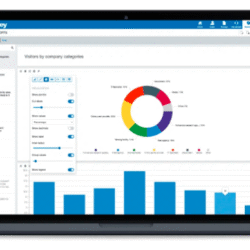For today’s law firms—especially small practices, solos, or firms experiencing fluctuating workloads—legal support that is both reliable and cost‑effective is essential. Virtual paralegal services fill that gap. By leveraging remote, legally trained professionals, firms can deliver high‑quality work, reduce overhead, and let attorneys focus on strategy, client relations, or growth. Next Level Paralegals is a standout provider in this space, offering attorney‑paralegals who integrate closely with law firms’ operations.
What Are Virtual Paralegal Services?
Virtual Paralegal Services are remote legal support functions carried out by trained personnel who perform paralegal duties from outside the client’s physical office. In Next Level Paralegals’ case, this means licensed attorneys serving in the role of paralegals. These attorneys have passed the bar in their jurisdiction and often have trial or litigation experience.
Such services include, but are not limited to: drafting pleadings and motions, document review, legal research and memorandum preparation, case management (including deadline tracking and docket monitoring), client intake, proofreading and citation checking, and administrative duties like preparing exhibits or support documents. Because the provider uses attorneys, the standard of writing, legal reasoning, and understanding of procedural rules tends to be higher.
Why Virtual Paralegal Services Are Gaining Popularity
Here are several compelling reasons law firms are turning to virtual paralegal services, especially ones staffed by attorneys:
1. Law‑Level Expertise
With Next Level Paralegals, you’re not hiring a generic assistant. The paralegals are attorneys who have passed their bar exam and have law school backgrounds. That means a much stronger baseline: legal writing, analytical thinking, and a real understanding of legal tasks that would otherwise require heavy supervision when done by non‑attorneys.
2. Cost Savings
A key benefit is financial. In‑office paralegals carry overhead: salaries, benefits, workspace, computers, hardware, etc. Next Level Paralegals positions its attorney‑paralegals at cost points less than half of a typical U.S.‑based paralegal. This makes premium legal support more accessible without compromising quality.
3. Reduced Hiring & Training Hassles
Hiring and training new paralegals is often time‑consuming and expensive. With a virtual paralegal provider that already screens for credentials (bar passage, legal education), handles background checks, and trains expectations, firms can skip much of that burden. Next Level Paralegals markets itself as doing the heavy lifting in finding, vetting, and supporting remote attorneys so you don’t have to.
4. Flexibility & Scalability
Legal work ebbs and flows. There are times with heavy discovery demands, filings, or trials; other times are quieter. Virtual paralegal services allow a firm to scale up support during busy periods and reduce it when work is light. Also, these remote teams often accommodate flexible hours so you can have support during non‑standard times if needed.
5. Improved Quality & Reduced Revisions
Since these virtual paralegals are attorneys, they often produce work that requires fewer corrections. Drafts are more precise, legal reasoning is more robust, citation mistakes fewer, leading to reduced turnaround times and more client satisfaction.
What to Look for When Engaging Virtual Paralegal Services
To get the best outcomes, here are important criteria and practices when selecting a virtual paralegal provider:
-
Licensed Attorneys & Bar Passage: Ensure the service uses attorneys as paralegals with real legal credentials—this ensures they understand legal standards and ethics.
-
Custom Training / Practice‑Specific Onboarding: Your new paralegal should be trained on your firm’s templates, workflows, style, preferred systems and communications. Next Level emphasizes training with “your practice in mind.”
-
Secure Infrastructure: Confidentiality and data security are non‑negotiable. The provider should use secure internet, secure hardware, and protocols to protect client data. Background checks and supervision also matter.
-
Clear Accountability & Performance Metrics: You should receive regular updates, tracking of tasks, key performance indicators (KPIs), such as turnaround times, error rates, workload status, etc., to ensure the relationship is delivering value. Flexibility in Hours and Responsiveness: For urgent tasks or deadlines, the ability of your virtual paralegal to respond promptly, possibly outside normal hours, can make a big difference.
Common Tasks Suitable for Virtual Paralegal Services
Here are examples of tasks law firms often delegate to virtual paralegal services, especially those staffed with legally‑trained professionals:
-
Drafting pleadings, motions, memos, and briefs
-
Document review, proofreading, citation and format checking
-
Legal research: case law, statutes, regulations and comparatives
-
Case file organization, docket management, managing deadlines and filings
-
Client intake and correspondence follow‑ups
-
Preparation of exhibits, appendices or support documents for filings
-
Administrative legal tasks, potentially including e‑filing, managing client documents, preparing discovery responses
Because the resource is remote and legally trained, many of the drafting, reviewing, research tasks that typically require significant attorney oversight can be delegated more safely.
How to Integrate Virtual Paralegal Services Smoothly
To maximize the benefit of using virtual paralegal services, your firm can follow these steps:
-
Define the Scope from the Start: Identify which tasks you want delegated, specify quality expectations, formats, deadlines, communication preferences.
-
Onboarding & Training: Even with highly trained individuals, sharing your firm’s style sheets, briefing them on your internal systems (document management, billing, case management) helps avoid misalignments.
-
Establish Communication Protocols: Use regular check‑ins, status reports, possibly daily or weekly updates, define who’s responsible for what, how revisions are handled.
-
Monitor Performance & Give Feedback: Use metrics (errors/revisions, turnaround time, client satisfaction) and adjust workflows or expectations based on feedback.
-
Ensure Ethical & Legal Compliance: Even though your virtual paralegal might be an attorney, tasks that require attorney judgment should remain under supervision; ensure clients are aware who is performing the work; make sure billing and delegation practices comply with local rules.
Is Virtual Paralegal Services Right for Your Firm?
If you recognize any of these issues, virtual paralegal services may bring advantages:
-
You find yourself doing or supervising a lot of drafting, proofreading, or basic legal work that takes time away from higher‑level legal tasks.
-
You constantly train new paralegals or junior staff and spend a lot of energy managing turnover.
-
Overhead costs for staffing, office space, equipment, or benefits are burdening your budget.
-
You have deadlines, filings, discovery, or document review that bottleneck due to insufficient support.
-
You want to scale your operations without matching overhead (e.g. expanding practice areas, taking more clients) but don’t want to immediately hire more full‑time in‑office support.
Virtual Paralegal Services—defined by legally trained professionals working remotely—are an increasingly smart solution for law firms aiming to improve efficiency, reduce costs, and raise the quality of their legal support. Providers like Next Level Paralegals, with attorney‑paralegals who passed the bar, secure infrastructure, practice‑specific training, and strong oversight, enable attorneys to offload lower‑value tasks, meet deadlines more reliably, and focus on growth and client work.



